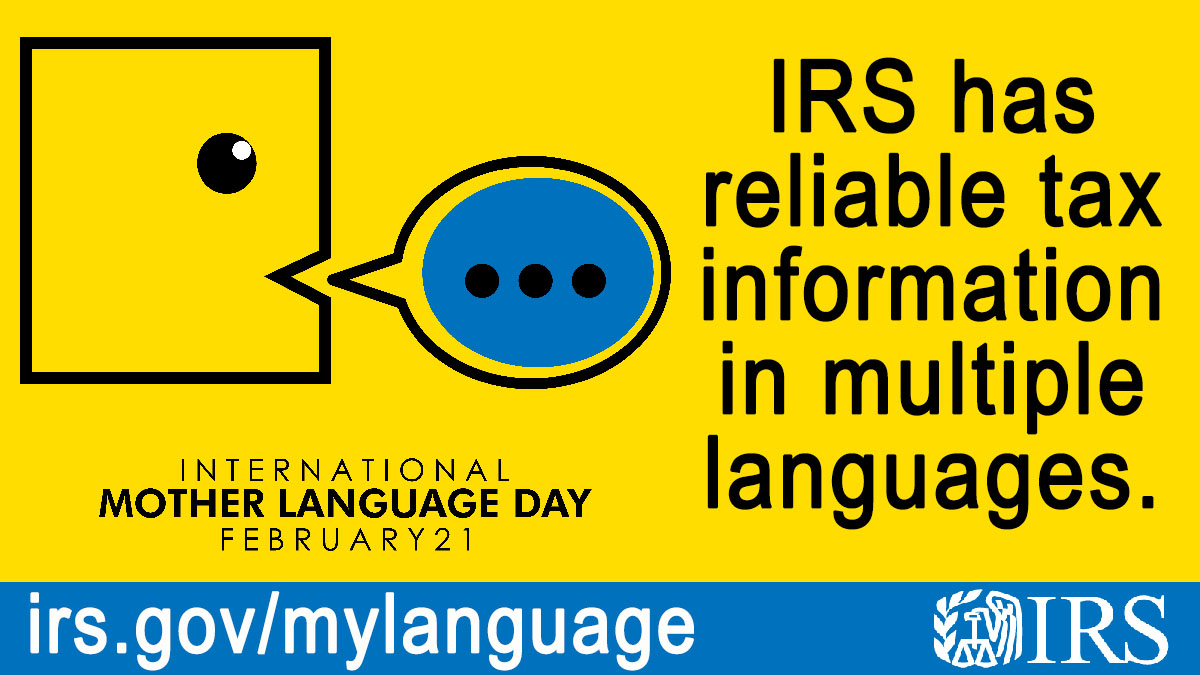The Internal Revenue Service (IRS) is responsible for collecting taxes and enforcing tax laws in the United States. As part of its mission, the agency is committed to serving all taxpayers, regardless of their background or language preference.
To this end, the IRS has expanded its multilingual resources and services in recent years, making it easier for non-English speakers to understand and comply with tax laws.
One of the key ways the IRS has expanded its multilingual resources is by providing tax forms and publications in multiple languages.
In addition to English, the agency now offers forms and publications in Spanish, Chinese, Korean, Vietnamese, Russian, and more.
These forms and publications cover a wide range of topics, from filing individual tax returns to reporting foreign assets and income. They are available for download on the IRS website or can be requested by phone or mail.
To further assist non-English speakers, the IRS has also established a toll-free telephone service with live interpreters. This service is available in more than 350 languages and can help taxpayers with a variety of issues, including filing tax returns, making payments, and resolving disputes.
The interpreters are trained to handle tax-related terminology and can provide assistance in real-time, making it easier for non-English speakers to navigate the tax system.
In addition to these resources, the IRS has also developed multilingual educational materials and outreach programs. For example, the agency has created educational videos in multiple languages that explain the tax filing process and highlight important tax law changes.
These videos are available on the IRS website and can be viewed online or downloaded for offline viewing. The agency also offers workshops and seminars in various languages to help taxpayers understand their tax obligations and avoid common mistakes.
The IRS’s expanded multilingual resources and services are part of a broader effort to improve taxpayer service and ensure that all taxpayers have access to the information and support they need to comply with tax laws.
By providing forms, publications, telephone services, and educational materials in multiple languages, the agency is making it easier for non-English speakers to understand their tax obligations and stay compliant with the law. This not only benefits individual taxpayers but also helps to strengthen the integrity of the tax system as a whole.
Volunteer Income Tax Assistance (VITA)
The IRS has also established a Volunteer Income Tax Assistance (VITA) program that provides free tax preparation services to eligible individuals with limited English proficiency.
VITA sites offer tax preparation services in multiple languages, including Spanish, Chinese, and Korean, among others.
The program is staffed by trained volunteers who are knowledgeable about tax laws and can help taxpayers prepare and file their tax returns accurately. In addition to tax preparation services, VITA sites also offer assistance with tax-related issues, such as obtaining an Individual Taxpayer Identification Number (ITIN) or claiming tax credits.
Furthermore, the IRS has launched a multilingual webpage on its website that provides information on a wide range of tax topics in various languages.
The webpage includes information on tax refunds, tax credits, and other tax-related issues, as well as links to forms, publications, and other resources in multiple languages. This makes it easier for non-English speakers to find the information they need to comply with tax laws.
The IRS has also developed partnerships with community organizations and non-profit groups to provide tax education and assistance to non-English speakers. These partnerships help to expand the reach of the IRS’s multilingual resources and services and ensure that more taxpayers have access to the information and support they need to comply with tax laws.
The agency has also established a Taxpayer Advocate Service (TAS) that provides assistance to taxpayers who are experiencing financial difficulties or other tax-related problems. The TAS has a dedicated multilingual hotline that provides assistance in over 240 languages.
Conclusion
In conclusion, the IRS’s expanded multilingual resources and services demonstrate the agency’s commitment to serving all taxpayers, regardless of their language preference.
By providing tax forms, publications, telephone services, educational materials, and other resources in multiple languages, the IRS is helping to make the tax system more accessible and easier to navigate for non-English speakers.
These resources and services not only benefit individual taxpayers but also help to strengthen the integrity of the tax system by promoting compliance with tax laws.
The IRS’s efforts to expand its multilingual resources and services are a positive step towards improving taxpayer service and building trust in the tax system.

Pingback: Individual Taxpayer Identification Number: Explained - Global Middle Class